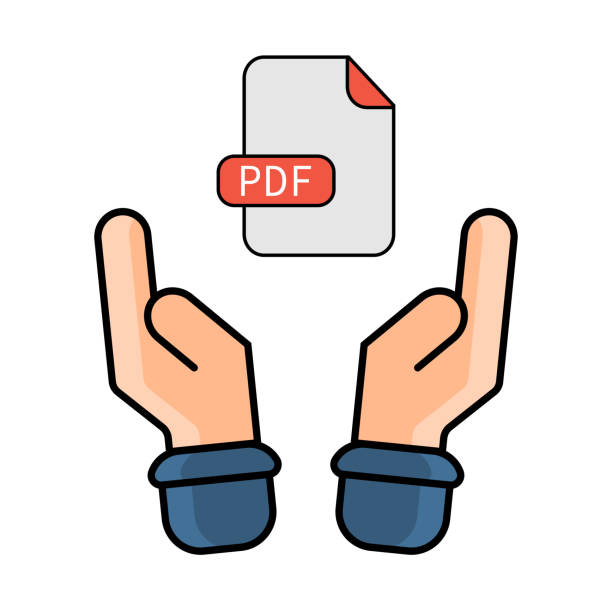What You Need to Know Before Getting Involved in Microlending in Nigeria
Microlending is an important source of financial support for many entrepreneurs in Nigeria. It is a form of financial support that offers small loans to entrepreneurs and small businesses who may not be able to access traditional financial products. Microlending in Nigeria has seen tremendous growth in recent years, and it has become an important tool for entrepreneurs and small businesses to access the capital they need to grow their businesses. In this blog post, we will discuss the basics of microlending in Nigeria, the advantages of microlending, and what you need to know in order to properly leverage the benefits of microlending in your business.
Before getting started with microlending, however, it is important to understand the different types of microlending available in Nigeria. Microlending can come in the form of individual loans, group loans, or even peer-to-peer lending. Each type of microlending has its own benefits and drawbacks, so it is important to research the different options available before making a decision. Additionally, it is also important to understand the different regulations and laws that govern
What is Micro-lending?
Microlending is becoming an increasingly popular form of alternative loan option in Nigeria. It is a loan that is typically smaller in size and is offered to individuals or small businesses that may not qualify for a traditional loan. This type of loan allows borrowers to access credit they may not otherwise have access to due to limited credit history or lack of collateral. Micro-lending typically involves lending a smaller amount of money to borrowers who may not otherwise have access to traditional financing, such as small business owners, entrepreneurs, or those with poor credit.
In Nigeria, micro-lending is becoming increasingly popular as a way for entrepreneurs to access the capital they need to start their businesses. Micro-lenders in Nigeria offer loans to individuals and businesses, typically for amounts ranging from N10,000 to N1,000,000 in English (US) language. These loans are usually short-term, and the interest rate is usually high. However, the risks associated with these loans are lower than with traditional loans, since they are smaller in size and shorter in duration.
For those looking to access capital in Nigeria, microlending can be a great option. It can provide access to capital for those who may not have the credit history to get a loan from a traditional lender, as well as provide the opportunity to grow a business without having to take on a large amount of debt. It is important to understand the terms and conditions of the loan before signing on the dotted line, as well as the risks associated with it. By doing your research and comparing microlenders, you can find the best loan option to fit your needs.
What is Microfinance?
Microlending in Nigeria is becoming an increasingly popular way for those in need to access financial services and increase their incomes. Microfinance is the provision of financial services to low-income individuals or households who may not have access to traditional banking services. Microfinance includes a range of services such as micro-loans, savings accounts, insurance, and other financial products. Microlending is a type of microfinance that involves providing small loans to individuals or small businesses in order to help them start or expand a business.
Microlenders in Nigeria generally provide small loans to those who cannot qualify for a traditional bank loan, such as those with low incomes. Microlenders typically evaluate loan applicants based on factors such as the borrower’s credit score, repayment history, and income level. Interest rates for microloans in Nigeria are typically lower than other types of loans, but may be higher than those offered by traditional banks.
For those looking to access microlending in Nigeria, there are a few steps to take. First, it is important to research the various lenders available and compare their interest rates and terms to find the most suitable option. Additionally, potential borrowers should make sure to read and understand the loan documents before signing and ensure that they are able to make the required repayment on time. Finally, borrowers should make sure to keep up with their payments to avoid any negative consequences.
Microlending in Nigeria is an excellent way for those in need to access financial services and increase their incomes. With the right research and preparation, borrowers can find the perfect loan and build a successful financial future.
Understanding Micro-lending In Nigeria
Microlending in Nigeria is an increasingly popular alternative form of financing for small businesses and entrepreneurs. Microloans are typically small loans of up to N500,000 provided by non-traditional or non-bank lenders. This type of financing is ideal for those who have limited access to traditional banking services and need access to capital to fund their business.
The benefits of taking out a microloan include faster access to capital, lower interest rates, and more flexible repayment terms than those offered by traditional lenders. However, there are also risks associated with micro-lending in Nigeria, such as higher interest rates and shorter repayment periods. Therefore, it is important to research and compare different microlenders to find the best option for your business needs.
When considering microloans, it is important to understand the risks and benefits associated with this type of financing. Although microloans can be an effective way to finance your business, it is important to do your research to determine if this type of loan is right for you. Be sure to compare the interest rates, repayment terms, and other factors between different microlenders before making your final decision. With the right research and comparison, you can find the microlender that will best fit your business needs.
How Can You Access Micro-lending In Nigeria?
Micro-lending is an increasingly popular way for entrepreneurs and small business owners in Nigeria to access capital. With the rise of online platforms and other financial institutions offering micro-lending services, accessing capital in Nigeria has become easier and more convenient than ever before.
In order to access micro-lending in Nigeria, you will need to meet certain eligibility criteria. This includes having a good credit score, a steady source of income, and a valid form of identification. Once you have met the eligibility criteria, you can apply for a loan through the lender’s website or a physical branch. When applying for a loan, you will need to provide information such as your financial history, credit score, and the purpose of the loan. Once your loan application is approved, you will typically receive the funds within a few days.
Interest rates for micro-lending loans in Nigeria vary depending on the lender, but typically range between 5% and 15%. It is important to remember that the higher the interest rate, the more expensive the loan will be. Therefore, you should always compare different lenders and their interest rates before applying for a loan.
Micro-lending is an excellent way for entrepreneurs and small business owners in Nigeria to access capital. With the right information and research, you can find the right micro-lending service for your needs. With the right lender, you can get the capital you need to start or grow your business.
what are the advantages of microlending
The concept of microlending is becoming increasingly popular in Nigeria as it offers access to capital to businesses that may not qualify for traditional bank loans. Microlenders often offer lower interest rates than those of traditional banks, and are more flexible and willing to work with borrowers who have weak credit or lack collateral. The quick turnaround time of microlending is also a major benefit; it can take weeks or even months to get a loan from a traditional lender, but it can take a matter of days or weeks to get a loan from a microlender.
In addition to providing access to capital, microlenders often provide resources such as business and financial education to help borrowers succeed. This can help to stimulate economic growth in underserved markets, as well as having a positive social impact by encouraging entrepreneurs to create jobs in their communities.
For those looking to access capital for their business in Nigeria, microlending can be a great option. It offers low-interest rates, flexibility, quick turnaround times, access to resources, and access to capital for underserved markets. It can also have a significant positive social impact by creating jobs in local communities.
Conclusion
Microlending in Nigeria is an important and effective tool for promoting economic growth and alleviating poverty. Microlenders in Nigeria are typically non-governmental organizations or private businesses that offer smaller loans than traditional banks, with shorter repayment periods and often higher interest rates. Borrowers must meet certain criteria in order to be approved for a microloan, including having a regular source of income and being able to demonstrate an ability to repay the loan. It is important for potential borrowers to understand their rights and responsibilities when it comes to microlending in Nigeria, as the country is subject to numerous regulations and laws.
Microlending can be an invaluable source of capital for those who are unable to obtain traditional bank loans. It can provide access to capital for those who may not be able to access traditional banking services, allowing them to invest in their businesses and grow their incomes. However, it is important to understand the risks associated with taking out a microloan in Nigeria, such as the potential for high interest rates and short repayment periods. Borrowers should ensure they are aware of the terms and conditions of the loan, and if necessary, seek professional advice before agreeing to a microloan.






